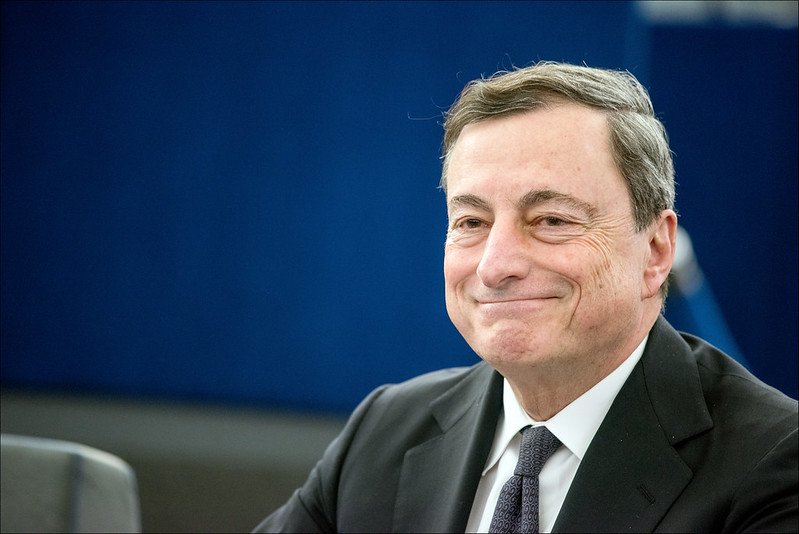By Marios Eliades
The European People’s Party (EPP), which groups together the Centre-Right parties of the European Union, held its congress in Bucharest about two weeks ago.
As expected, the meeting dealt with issues relating to Europe and its future, particularly in an age of unknown variables, as our current era has aptly been described.
Included on the agenda was the position of the EPP in relation to the leaderships of the European Institutions (European Council, European Commission et al.) as they will emerge after next June’s European Elections.
Following two days of consultations, the EPP resolved to nominate the current European Commission President and member of the EPP Presidency, Ursula von der Leyen, for another term.
In an article in the wake of the congress entitled “The European Centre-Right as a compass for the future of the EU”, the EPP Secretary General Thanasis Bakolas wrote that Ms. Von der Leyen “has displayed a leadership spirit and steered through many crucial decisions,” which in his opinion justified full support to her candidacy for a new term.
I do not wish to go into an assessment of von der Leyen’s performance as Commission President from 2019 to 2024.
I will turn my attention to whether there exist in the European political sphere such leading personalities for the position of the Commission President that should be seriously considered by EPP even if they do not come from Centre-Right parties. The other European parties are no less burdened by the same task when it comes to choosing their own candidates for the office.
The European Union is today faced with a multitude of challenges, which without exaggeration pose a mortal threat to its very existence. Suffice it to tentatively mention the migration issue, the looming spectacular rise of the extreme right in many European states and within the European Parliament, the nightmare of the already palpable threat from the East against Europe, as well as the gloomy outlook for Europe of Trump’s likely re-election to the Presidency of the United States.
These problems call for tested veritable leaders to be at the helm of European Institutions. What is needed for such a development to come about is the emancipation of the European political parties from the “servitude” of being compelled to choose the Union officials using as criteria their partisan identity and origin.
I would beg the esteemed leaders of the Centre-Right parties of the EU that met in Bucharest to let me remind them of the historical decision of two great leaders of France and Germany respectively, Francois Mitterand (a socialist) and Helmut Kohl (a Christian Democrat), who having crossed their respective ideological boundaries. played a leading part in electing Jacques Delors as President of the European Commission (1985-1995).
Delors is today acknowledged as the most successful Commission President in the 70 – year long life of the Union. He is credited with the most important achievements of the Union to date. Those include the Single Market, the Euro, the Schengen Treaty and so many other landmarks of European integration.
Are today’s leaders of the European Centre-Right and of the other groups of the European Parliament capable of drawing lessons from the past?
The requirement, therefore, in the selection process for Union officials should be one and only:
The commitment of any candidate to the European Ideal and its fundamental democratic values, and their proven and universally acknowledged endeavour to achieve it.
In the light, therefore, of the above criterion, a European citizen with unrivalled qualifications emerges as the indisputable favourite for the position of Commission President:
Former Italian Prime Minister (February 2021 – October 2023), Mario Draghi, who also served as President of the European Central Bank (2011-2019).
In order to verify the validity of my claim that Mario Draghi constitutes the indisputable favourite for the position, I kindly ask the reader to visit Draghi’s website to ascertain the leadership stature of the man.
Here, I confine myself to mentioning his vigorous action as President of the European Central Bank, during the world economic crisis (2012-2013) that hit Europe in particular. Draghi alone stood up against the unprecedented financial tempest, saving the Euro by his historic stand encapsulated in these words: “I would be prepared to do whatever it takes to prevent the Euro from falling.” His intervention saved the Euro and most probably the European edifice as well. Thereafter, as Prime Minister of Italy for 18 months he succeeded in transforming the country from “the contemporary sick man of Europe”, as Italy was being described then, to the “Country of the Year 2022” worldwide, according to The Economist.
I deeply believe that the national leaders of all ideological nuances, European parties, figures of European public life who care about the future of our continent, and those who have a say in choosing its Institutional Officials would not succeed in carrying out their mission if they maintain as criteria of their options the party identity, ideological provenance, national origin or other similar requirements for candidates.
If by contrast the national leaders of all 27 member countries of the Union and other interested entities were to adopt meritocracy as the dominant selection requirement, they would not only be protecting Europe but also proving their attachment to the perpetually invariable axiom of World History and painful reminder to us Europeans that:
It is Personalities not Principles that move the Age.
Marios Eliades is a former government minister







Click here to change your cookie preferences